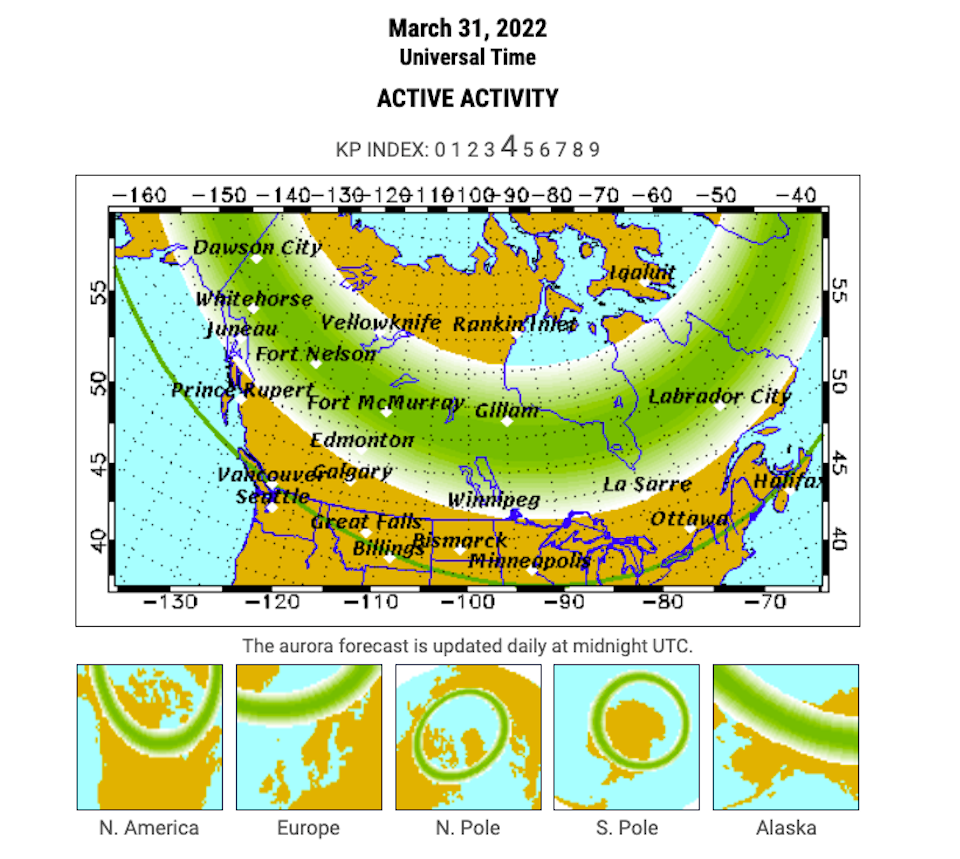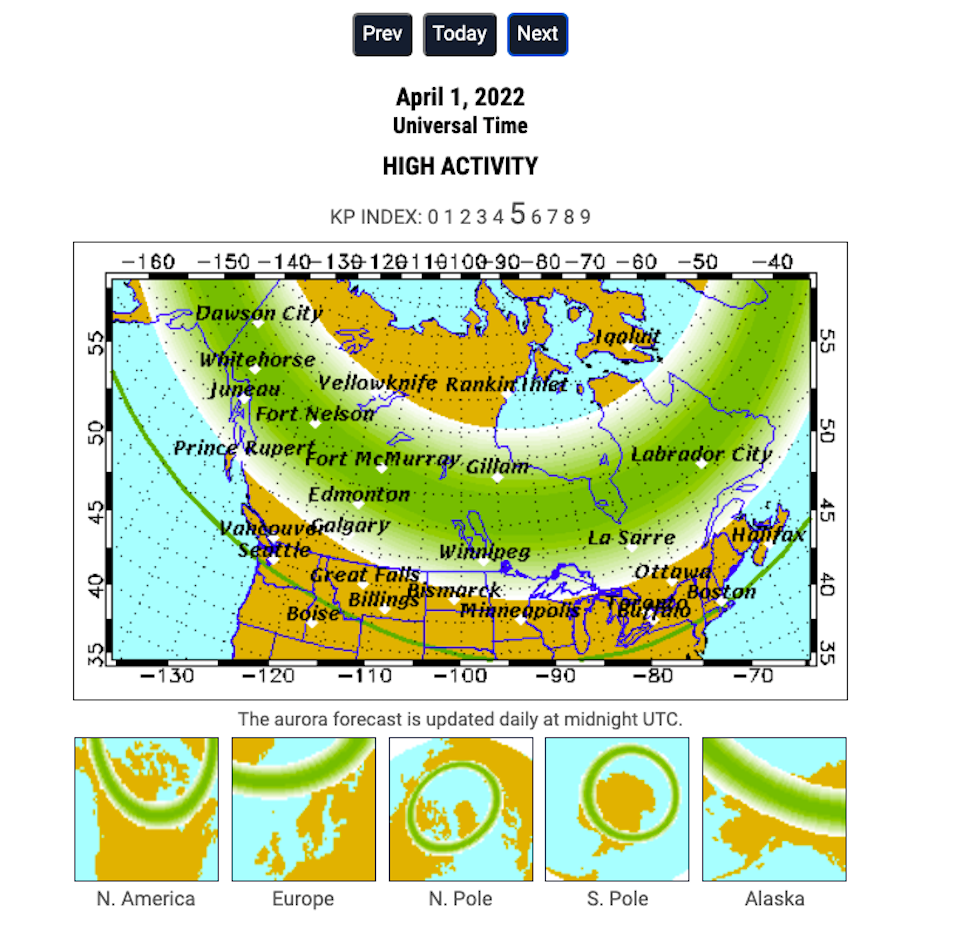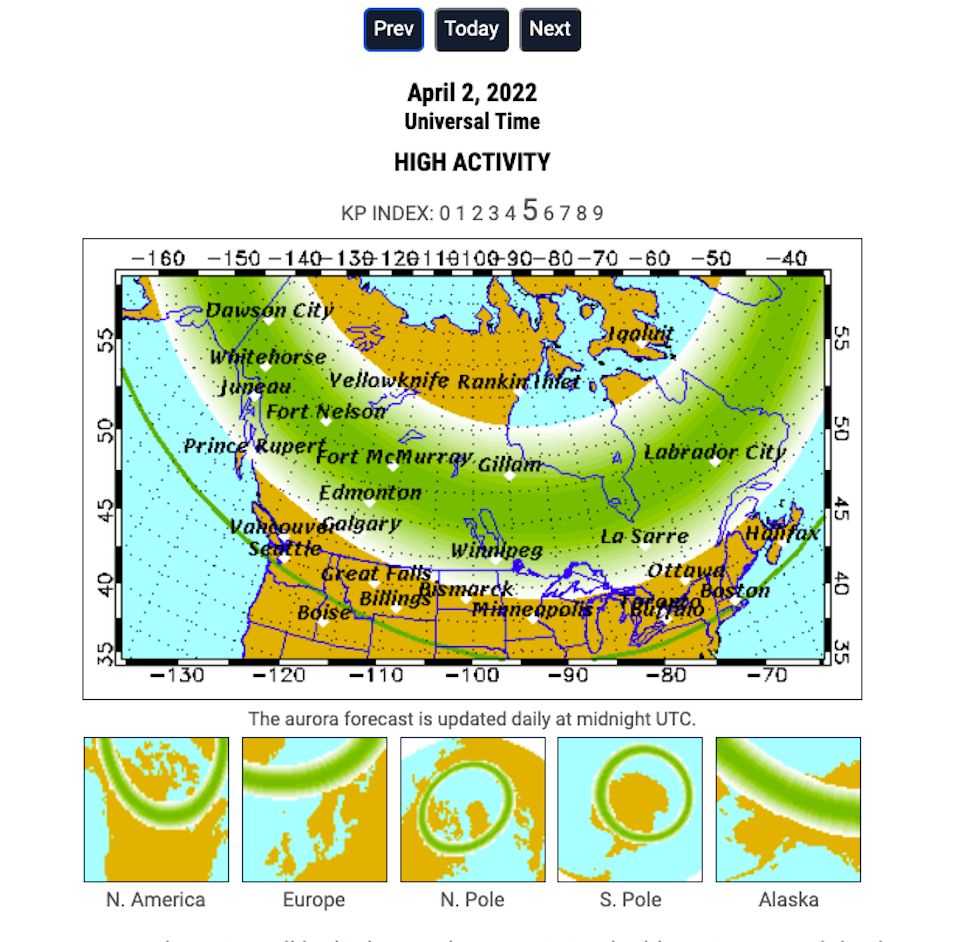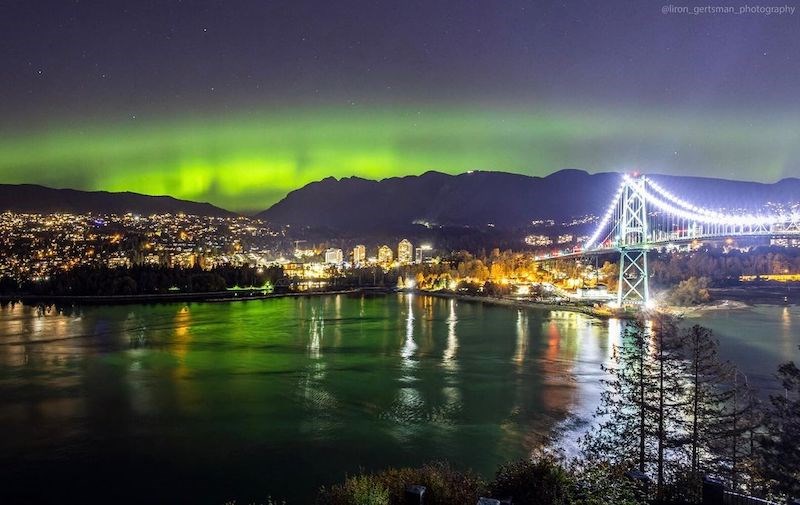Metro Vancouverites may be gifted a few rare opportunities to watch the Northern Lights dance in local skies next week.
A solar flare with Earth-directed coronal mass ejections took place on Friday (March 25), according to SpaceWeatherLive.com. The event is described as the "unimpressive sunspot region 2974" producing a long duration M1.4 solar flare.
The National Oceanic and Atmospheric Administration (NOAA)'s Space Weather Prediction Center has not issued a geomagnetic storm warning in its three-day forecast but aurora viewing opportunities are expected next week.
According to the University of Fairbanks (UAF), the northern lights may be viewable in local skies this weekend on March 31, April 1, and April 2.
Auroral activity is expected to be high on March 31 and visible "overhead from Inuvik, Yellowknife, Rankin and Iqaluit to Juneau, Edmonton, Winnipeg and Sept-Iles, and visible low on the horizon from Vancouver, Great Falls, Pierre, Madison, Lansing, Ottawa, Portland and St. Johns."
The university's online aurora monitor map shows what regions the aurora's green glow will likely reach, as well as another area where there is less of a possibility. Additionally, there is a brief description below the map of the aurora activity on that particular day. You can switch to other days to see the forecast, too.

On April 1, the university expects highly active auroral displays will be visible overhead from Inuvik to Thunder Bay, ON and down to places south of the border including Seattle, Chicago, and Boston.

Auroral activity will also be high on April 2. The displays will be visible again overhead from Yellowknife to Thunder Bay, ON and down to Seattle and Boston.

What is the best time of night to see aurora?
UAF recommends that you plan to be out for three or four hours around midnight. That said, the dancing lights are active throughout the night. Since clear sky and darkness are both essential to see aurora, the best time is dictated by the weather and by the sunrise and sunset times. The moon is also very bright and can make it more difficult to view the aurora, so lunar cycles should be taken into account.
Find out more information about when to see the vibrant display with the UAF's aurora monitor map.



